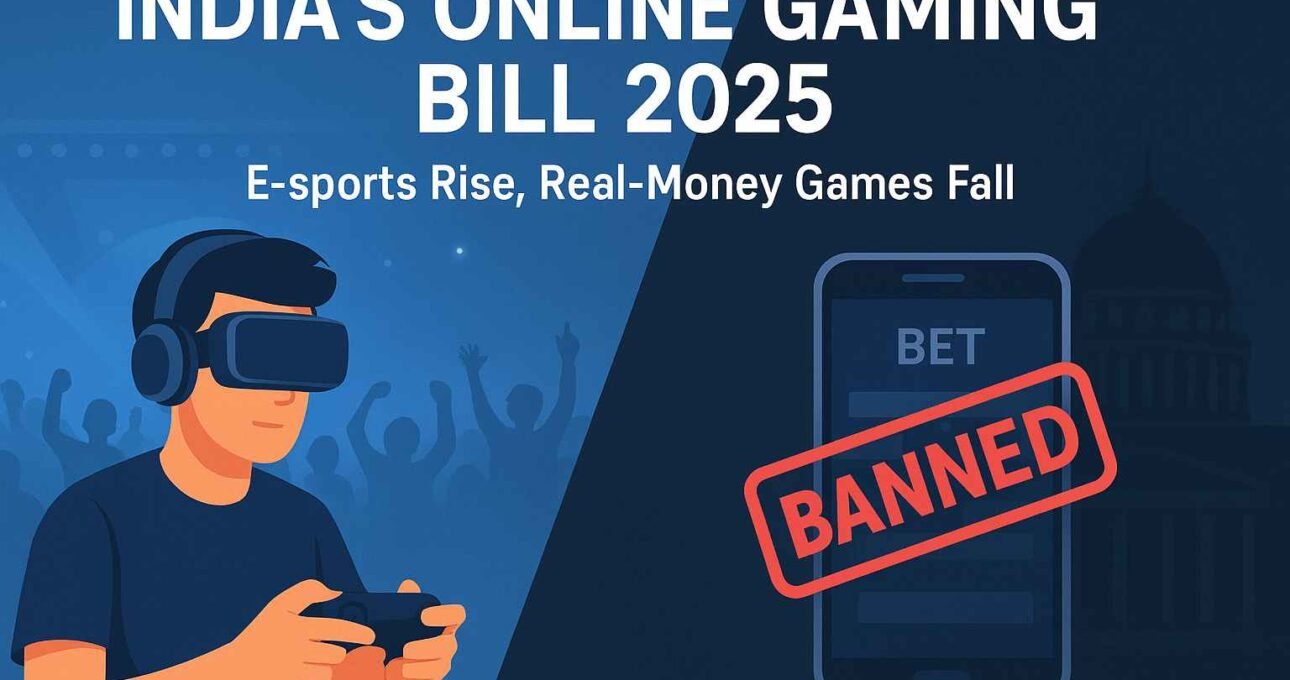The Promotion and Regulation of Online Gaming Bill, 2025, passed in the Lok Sabha on August 20, 2025, is a turning point for India’s digital entertainment industry. For the first time, the government has clearly separated e-sports and social games from real-money formats like fantasy sports, rummy, and poker. Supporters call it a necessary step to protect citizens, while critics warn it could damage the country’s fast-growing gaming sector.
What the Bill Says
The new law bans all real-money and betting games. This means no platform can offer, promote, or advertise them, and banks or payment apps cannot process related transactions. Breaking the law could mean up to three years in jail and fines of up to ₹2 crore.
On the positive side, e-sports have been officially recognized as a sport. The government has promised to set up training academies, awareness campaigns, and research centers to help the industry grow. Social and educational games that promote skills, culture, and digital literacy will also receive government support. To oversee all of this, a new central regulator will be created to enforce rules, handle complaints, and guide policy.
Impact on the Market
India’s online gaming industry was worth about $3.7 billion in 2024 and was expected to grow to $9.1 billion by 2029. But since more than 80 percent of this revenue came from real-money games, the ban has shaken the industry.
Foreign investors had already put over $3 billion into Indian gaming startups, most of it in real-money platforms. Over 1,900 companies and 130,000 professionals depend on the sector. Industry groups say more than 200,000 jobs could be lost if companies shut down.
Industry Pushback
Gaming federations like the All India Gaming Federation and the E-Gaming Federation have asked the government to reconsider the bill. They argue that a blanket ban will harm innovation, wipe out tax revenue, and push players toward unsafe offshore betting apps.
They also warn that this move goes against India’s ambition of building a $1 trillion digital economy and risks losing about ₹20,000 crore in annual tax collections.
Government’s Argument
The government says the bill is about protecting citizens, especially young people, from gambling addiction, fraud, and financial losses. Officials also highlight concerns about money laundering.
However, critics argue that the bill was passed without industry consultation or a phased rollout. Some companies are even considering a legal challenge in the Supreme Court, particularly around how “skill-based” games are being treated as gambling.
What’s at Stake
E-sports and social gaming could see more recognition and support, but real-money gaming faces a complete shutdown. Investors and startups are now in limbo, and thousands of jobs are at risk. While the government may succeed in protecting citizens from online betting harms, the industry fears this may drive players to unsafe, unregulated foreign platforms.
Final Thoughts
The Online Gaming Bill 2025 is one of the most controversial laws India has passed in the digital era. It prioritizes safety and regulation but leaves the industry worried about jobs, innovation, and revenue losses.
The question now is whether this bold move will prove to be a game changer in protecting society, or a game over for one of India’s fastest-growing industries.
